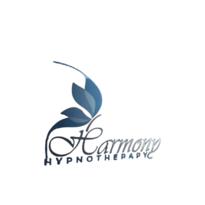Sleep Deficit Teen Anxiety Link Proven
 Sleep deprivation can cause serious mental health issues in young adults and teens. Sadly, we often then treat the effects of effects of sleep deprivation rather than the cause. And this can cause even more damage.
Sleep deprivation can cause serious mental health issues in young adults and teens. Sadly, we often then treat the effects of effects of sleep deprivation rather than the cause. And this can cause even more damage.
Research tells us teenagers and young adults need an average of 9¼ hours of uninterrupted sleep in order to consolidate memory, repair muscles and to release hormones which regulate growth and appetite. Adequate sleep regulates moods, reduces anxiety, and it enhances focus, concentration, social skills and healthy decision making.
The following facts and lists are designed to support parents support their kids and educate them in order for them to make healthy, informed decisions about sleep. Once young people know the facts, and they realize their parents have no agenda other than their happiness and wellbeing, they often make great self-motivated choices of their own accord.
A few interesting facts about sleep
- Teenagers and young adults need between 9-10 hours sleep every night.
- Adequate sleep is as vital as adequate air, food and water.
-
For each hour of lost sleep (below 9 hours/night):
- the risk of obesity increases by 80%.
- the risk of feeling sad or hopeless increases by 38%.
- the risk of suicidal thoughts increase by 58%.
- Students who earn C’s, D’s, and F’s go to bed later, and get 20 minutes less sleep on average, than “A” students.
- Young people who engage in physical activity sleep better than those who don’t.
- Staying awake for 24 hours, or getting an average of 6 hours sleep over a week, reduces hand eye coordination to the same level as having a blood alcohol of 0.1%.
- 6 hours of sleep or less triples your chance of getting in a crash.
- Light, especially the “blue light” from computer/phone screens, suppresses melatonin – the hormone that enables sleep. These lights need to be avoided for at least 1 hour before bedtime in order to fall asleep easily.
Lack of sleep effects on teenagers and young adults
|
Depression Anxiety Panic attacks Emotional breakdowns Hopelessness Sadness Negative self image Irritability Crankiness Impatience Oversensitivity Irrational fear and worrying Conflicts, especially family members Inability to focus Poor concentration Poor memory Shortened attention span Reduced academic performance Learning difficulties Clumsiness Decreased coordination Weight gain Obesity Acne Skin problems Lack of energy |
Aggressive behaviour – including yelling and shouting Moodiness or mood swings Increased frustration Loss of motivation Oppositional behaviour Poor decision making Slower physical reflexes Increased risk of car accidents Poor impulse control Increased impulsiveness and risk taking Inability to regulate emotions/moods Hyperactivity ADHD Weak immune system High blood pressure Diabetes Headaches Nausea Food and sugar cravings Muscle aches Tremors or shakiness Dizziness Fainting Hernia Long-term sleep problems |
Tips for a good sleep
- Make sure you get at least 9 hours sleep a night.
- Resist the temptation to overschedule.
- Aim to get outside, in nature, for at least half and hour a day.
- A regular exercise routine helps you sleep.
- Eat “growing food” – anything that was once growing and alive – rather than processed foods or foods that come out of a factory.
- Have a good healthy dinner – you can’t sleep on an empty stomach.
- Drink 2 litres of water a day, but avoid drinking fluids too close to bedtime.
- Alcohol and smoking reduce your sleep quality.
- Aim to go to bed at the same time each night, especially during the week. This way you will help form a good habit, and your body will naturally be ready for sleep.
- Avoid screens for an hour before sleep.
- Avoid caffeine and sugary foods or drinks for at least 5 hours before sleep.
- Put any concerning thoughts or worries that come to mind while you’re about to sleep on a bookshelf in your mind’s eye – you can’t resolve them now while you’re sleeping, you will look at them in the morning.
- If you need to, take a melatonin supplement – available at health stores and some chemists. They come in a spray or chewable tablets.
- Listen to relaxing music, a sleep inducing soundtrack, or sleep apps half an hour before sleep.
- A soundtrack that is designed to take you straight into restorative sleep will ensure a quality sleep whereby your body will rejuvenate.
What parents can do
- Ensure our kids have a safe, quiet, comfortable, dark and inviting sleeping area.
- Encourage a good sleep routine by informing our teens.
- Take the pressure off our kids, scheduling less rather than more into their day.
- Avoid emotive discussions or topics in the evenings.
- Check how our teens are sleeping, and ask them how we can help them.
- Assist them in alleviating their concerns, reassuring them, and offering support.
- Remind ourselves that although we may be able to cope with less sleep, our kids can’t.
Links and references
https://www.betterhealth.vic.gov.au/health/healthyliving/teenagers-and-sleep
https://www.betterhealth.vic.gov.au/health/conditionsandtreatments/sleep-deprivation
http://www.sleeppassport.com/teen-sleep-deprivation.html
http://www.end-your-sleep-deprivation.com/what-teens-should-know-about-sleep.html
http://www.childmind.org/en/posts/articles/2014-6-10-teens-starved-sleep
http://www.naturalnews.com/024490_sleep_teenagers_deprivation.html
http://www.childmind.org/en/posts/articles/2014-7-1-consequences-teenage-sleep-deprivation
http://www.nationwidechildrens.org/sleep-in-adolescents
http://well.blogs.nytimes.com/2014/10/20/sleep-for-teenagers/?_r=0
http://www.apa.org/monitor/oct01/sleepteen.aspx
http://www.sleepeducation.net.au/Docs/Adolescent's%20Sleep%20Facts%20Sheet.pdf
https://sleepfoundation.org/how-sleep-works/what-happens-when-you-sleep
Leave a comment
Comments will be approved before showing up.





Harmony Hypnotherapy
Author